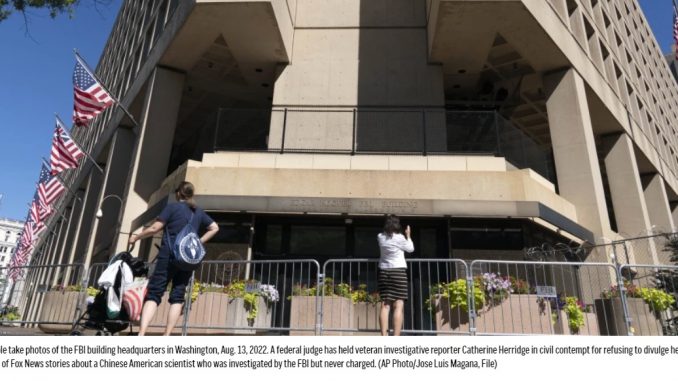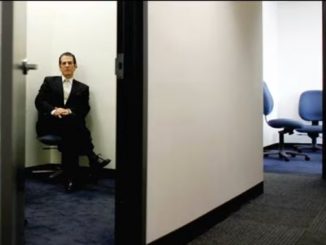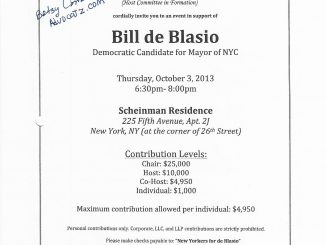
A Judge holding a journalist in civil contempt for refusing to divulge her source is against the rules of reporting on current issues, and should never happen. But Catherine Herridge is not the only one who has been told she better give the names of her sources …or else. Does the name Judith Miller ring a bell?
It certainly does for me, as a journalist who spoke with government officials, Kings and Presidents in Egypt, Israel and Jordan 1978-84. I guess you could say I have stuff.
On October 1, 2004, federal Judge Thomas F. Hogan found Miller in contempt of court for refusing to appear before a federal grand jury, which was investigating who had leaked to reporters the fact that Valerie Plame was a CIA operative. Miller did not write an article about the subject at the time Judge Hogan sentenced her to 18 months in jail but stayed the sentence while her appeal proceeded. On February 15, 2005, the United States Court of Appeals for the District of Columbia Circuit unanimously upheld Judge Hogan’s ruling. On June 17, 2005, the US Supreme Court declined to hear the case. On July 6, 2005, Judge Hogan ordered Miller to serve her sentence at “a suitable jail within the metropolitan area of the District of Columbia”. She was taken to Alexandria City Jail on July 7, 2005.
US reporter jailed in CIA trial
Prosecutor in Leak Case Calls for Reporters’ Jailing
Plame affair grand jury investigation
This scenario is truly frightening for those who want to publish secret stuff. However, I admit that sometimes sources need to be named. I am still a proponent of government transparency.
See the blog of the late Steve Buttry
Just sayin….
Betsy Combier
Editor, Parentadvocates.org
Editor, New York Court Corruption
Editor, National Public Voice
Editor, NYC Public Voice
Editor, Inside 3020-a Teacher Trials
WASHINGTON (AP) — A federal judge held veteran investigative reporter Catherine Herridge in civil contempt on Thursday for refusing to divulge her source for a series of Fox News stories about a Chinese American scientist who was investigated by the FBI but never charged.
U.S. District Judge Christopher Cooper in Washington imposed a fine of $800 per day until Herridge reveals her source, but the fine will not go into effect immediately to give her time to appeal.
Cooper wrote that he “recognizes the paramount importance of a free press in our society” and the critical role of confidential sources in investigative journalism. But the judge said the court “also has its own role to play in upholding the law and safeguarding judicial authority.”
“Herridge and many of her colleagues in the journalism community may disagree with that decision and prefer that a different balance be struck, but she is not permitted to flout a federal court’s order with impunity,” wrote Cooper, who was nominated to the bench by former President Barack Obama.
 A lawyer for Herridge (pictured at left), Patrick Philbin, declined to comment.
A lawyer for Herridge (pictured at left), Patrick Philbin, declined to comment.
“Holding a journalist in contempt for protecting a confidential source has a deeply chilling effect on journalism,” Fox News said in a statement. “FOX News Media remains committed to protecting the rights of a free press and freedom of speech and believes this decision should be appealed.”
A CBS spokesperson said the contempt order “should be concerning to all Americans who value the role of the free press in our democracy and understand that reliance on confidential sources is critical to the mission of journalism.”
The source is being sought by Yanping Chen, who has sued the government over the leak of details about the federal probe into statements she made on immigration forms related to work on a Chinese astronaut program.
Herridge, who was recently laid off by CBS News, published an investigative series for Fox News in 2017 that examined Chen’s ties to the Chinese military and raised questions about whether the scientist was using a professional school she founded in Virginia to help the Chinese government get information about American servicemembers.
The stories relied on what Chen’s lawyers contend were items leaked from the probe, including snippets of an FBI document summarizing an interview conducted during the investigation, personal photographs, and information taken from her immigration and naturalization forms and from an internal FBI PowerPoint presentation.
Chen sued the FBI and Justice Department in 2018, saying her personal information was selectively leaked to “smear her reputation and damage her livelihood.” Chen’s lawsuit says both her personal and professional life were upended amid a wave of negative media attention after the leak, leading to hate mail and death threats.
The judge had ordered Herridge in August to answer questions about her source or sources in a deposition with Chen’s lawyers. The judge ruled that Chen’s need to know for the sake of her lawsuit overcomes Herridge’s right to shield her source.
Herridge was interviewed under oath in September by a lawyer for Chen, but declined dozens of times to answer questions about her sources, saying at one point, “My understanding is that the courts have ruled that in order to seek further judicial review in this case, I must now decline the order, and respectfully I am invoking my First Amendment rights in declining to answer the question.”
Philbin, who served as deputy White House counsel during the Trump administration, has said that forcing Herridge to turn over her sources “would destroy her credibility and cripple her ability to play a role in bringing important information to light for the public.”
Philbin also told the judge that disclosing the identity of Herridge’s sources raises national security concerns, writing in court papers that there is a “serious risk” that Chen “was involved in making information about U.S. military members available” to the Chinese.
Legal fights over whether journalists should have to divulge sources are rare, though they’ve arisen several times in the last couple of decades in Privacy Act cases like the one filed by Chen. Some lawsuits have ended with a hefty Justice Department settlement in place of a journalist being forced to reveal a source.
In 2008, for instance, the Justice Department agreed to pay $5.8 million to settle a lawsuit by Army scientist Steven Hatfill, who was falsely identified as a person of interest in the 2001 anthrax attacks. That settlement resulted in a contempt order being vacated against a journalist who was being asked to name her sources.
This story has been corrected to reflect that the scientist’s first name is Yanping, not Yanpin.




Be the first to comment